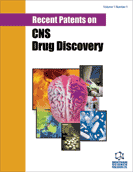Abstract
Current drug development for the treatment of Alzheimers disease is principally based on the amyloid cascade theory, and aims to reduce the levels of Aβ amyloid peptide in the brain. This can be achieved, either by decreasing peptide production through inhibition of β-secretase (also known as BACE-1) or γ-secretase, or by interfering with Aβ aggregation, or by promoting Aβ clearance. Targeting BACE-1, the proteolytic enzyme that initiates Aβ formation, has generated a lot of research interest recently and is currently thought to be one of the most promising therapeutic approaches. In this review, we summarize and discuss the latest patents and publications describing BACE-1 inhibitors, principally focussing on their drug properties and performance in preclinical trials.
Keywords: Aβ amyloid, Alzheimer's disease, aspartyl protease, β-secretase, preclinical trial, protease inhibitor, Hydroxyethylene derivatives, BACE Inhibitors, diamine derivatives
 19
19





















